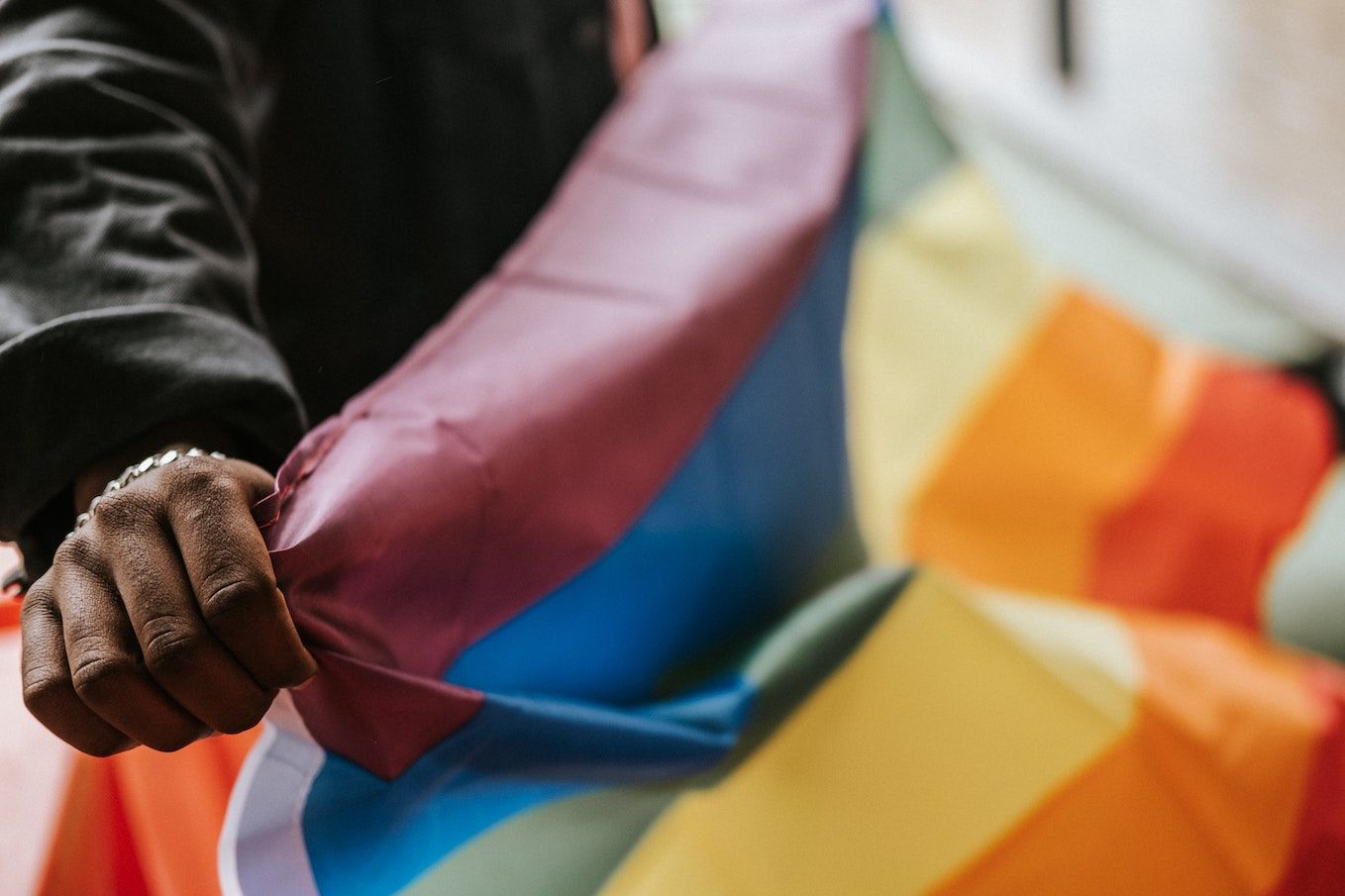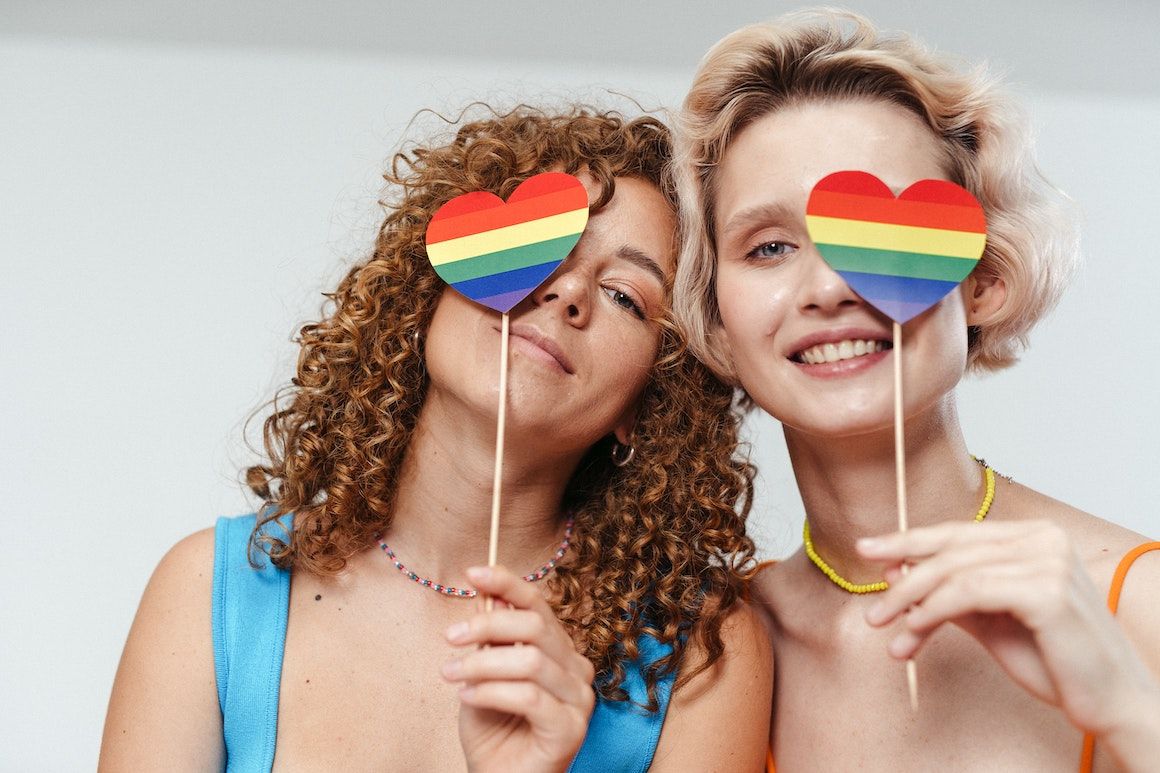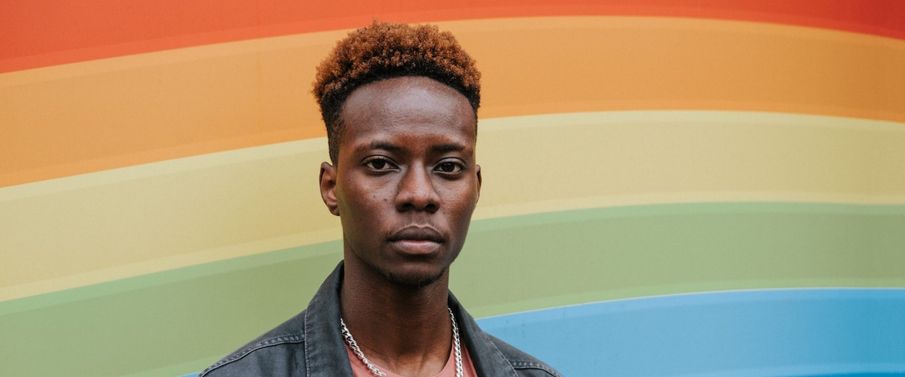What is it, how does it affect the diverse groups within the LGBTQIA+ community, and, importantly, what can we do about it?
Talking about mental health is never easy, but it seems harder to break the stigma when it comes to LGBTQIA+ people. As the artist and writer Alok Vaid-Menon wrote in their blog article “Impossibility of gender non-conforming life”, there are so many words to describe the physical violence that happens to the LGBTQIA+ community every day, but many fewer words, and less attention, on the psychological aspect of being queer.
It’s only relatively recently that organisations and researchers have focused on the wellbeing of the LGBTQIA+ community, publishing reports that reveal shocking and alarming data.
For example, NHS Digital’s first report on the health behaviours of lesbian, gay, and bisexual adults was only published in 2021, and showed that LGB adults have worse mental health, and poorer health outcomes, than heterosexual people, and are more likely to indulge in harmful behaviours, such as drinking or smoking at levels that may put them at risk.
According to a report published by Stonewall and YouGov in 2018, 52% of LGBTQIA+ British people said they had experienced depression in the previous year, 46% of transgender people had thought about taking their own life, and 41% of non-binary people had harmed themselves.
Further 2019 research by the organisations revealed that bi people reported experiencing depression even more than gay and lesbian people.
The researchers say this is due to the environment and the society we live in, where not only physical and psychological abuse against the LGBTQIA+ community happens every day, but also the threat and fear of discrimination itself can have a significant impact on mental health. This phenomenon is called ‘minority stress’.
What is minority stress?
Dr Sara Colognesi, a psychologist and psychotherapist, explains: “Several social and psychological theoretical orientations describe the concept of minority stress as a relationship between minority and dominant values, and the resultant conflict with the social environment experienced by minority group members.”
She continues: “This theory suggests that sexual minority health disparities can be explained in large part by stressors induced by a homophobic and hostile culture, which often results in a lifetime of harassment, maltreatment, and discrimination, and may ultimately impact access to care.”
Coined by Dr Winn Kelly Brooks, and mentioned for the first time in her book Minority Stress and Lesbian Women in 1981, minority stress theory has been studied by many researchers over the years. For example, psychiatric epidemiologist Professor Ilan H Meyer explained in 2007 how stigma and fear of discrimination may generate psychological distress in queer people.
As Dr Colognesi explains: “The most common manifestations of suffering from minority stress are experiences of prejudice and microaggressions, expectations of rejection, hiding, concealing, internalised homophobia, hypervigilance, and experience of chronic shame, and this may lead to the development of disorders commonly associated with chronic stress, depression, and PTSD symptoms.”
The consequences of this include, for example, that queer people are more likely to use and abuse drugs and alcohol, and tend to avoid treatment and seek healthcare for fear of discrimination.
“We also need to remember that LGBTQIA+ people may live in the intersection of more than one marginalised identity – such as race, disability, or fat people – so they might experience chronic stress, with different nuances, in several areas of their lives.”

Minority stress and coming out
We live in a society that assumes that all human beings are heterosexual, that their gender always matches with their sex, that there are only two sexes and two genders, and that everyone is sexually and romantically attracted to other people, even though it has been proved many times that the reality is more complex than this.
But if no one around you explains, or shows to you, that heteronormativity (the concept that heterosexuality is the preferred or normal mode of sexual orientation), gender, allonormativity (all humans experience sexual attraction to other people) and amatonormativity (all humans pursue love or romance, especially by means of a monogamous long-term relationship) are social constructs and not a requirement, it can be really hard to listen, discover, and love yourself, especially if you are very young.
Living in an environment where queer people are ridiculed, belittled, silenced, abused, and hated, can cause denial, fear, shame, and guilt, and experiencing the feeling of being forced to hide your own identity can generate mental health disorders.
Many queer people still cannot live authentically because they live or work in an unsafe environment and, in this regard, some research has revealed alarming figures.
For instance, 25% of transgender people in 2018 in the UK said that they had experienced homelessness at some point in their lives; gay and lesbian people are less likely to be invited to a job interview if they have conveyed their sexual orientation while sharing previous expericing working for, or volunteering with, an LGBTQIA+ organisation; and 11% of LGBTQIA+ people faced domestic abuse from a partner in 2017, with the highest rates reached among ethnic minorities and disabled people.
In addition, 35% of LGBTQIA+ people have hidden or disguised their gender identity or sexual orientation because of the fear of discrimination, while bi people are more likely to not come out to friends and family for fear of prejudice.
What we need to do
Dr Colognesi says: “Our society should follow the guidelines of the World Health Organization, which clearly state that human beings present a natural variance in sexual and relational orientations and gender identity, and guarantee that every citizen has the same rights.

“Governments should also provide correct information, and sexual and affective education in all school grades, including teaching staff and families, as well as updating the curricula of health-related university faculties, so that LGBTQIA+ people can access health services without having to fear invalidation, discrimination, and medical gaslighting. And all those useless and harmful practices such as ‘conversion therapies’ should be outlawed,” she says.
As we fight for a more equal society, it is also vital to validate our emotions and seek help when needed. Many LGBTQIA+ specific organisations offer support to queer people, giving them professional advice, organising events, or simply showing a willingness to listen.
Often, just talking, feeling loved and part of a community, can be of great help.
If you are struggling with your mental health, visit Counselling-Directory.org.uk or speak to a qualified counsellor.


Comments